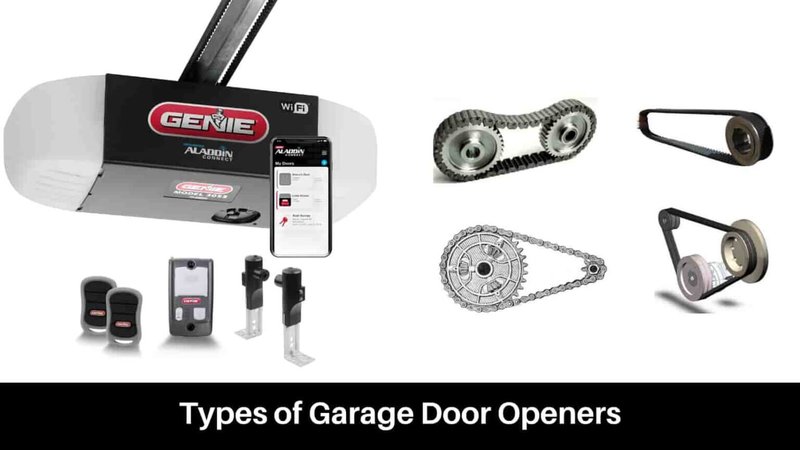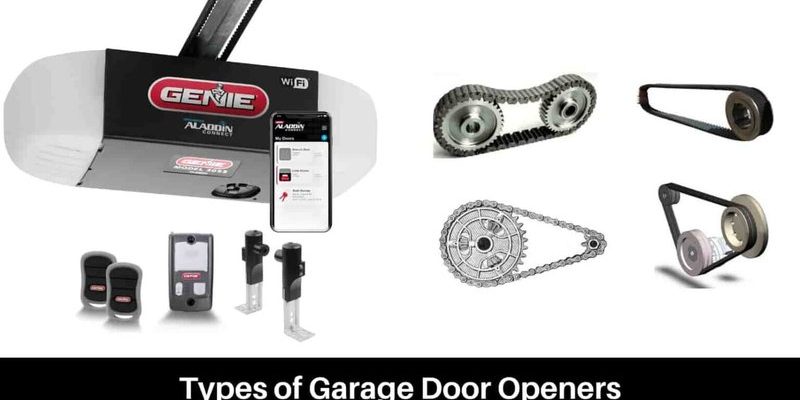
Imagine you’re standing at the garage door aisle, coffee in hand, staring at two shiny options: one made with rugged steel and the other with lightweight aluminum. You’re drawn to the idea of a reliable opener that stands the test of time, but what’s the real difference? In this article, we’ll break down the key points of comparison—so you can make an informed decision without ending up with buyer’s remorse.
Understanding Garage Door Openers
Before diving into the specifics of rail materials, let’s take a moment to understand what a garage door opener actually does. At its core, a garage door opener uses a mechanical device to open and close a garage door. This is usually done via a motor that travels along a rail system, either lifting or lowering the heavy door. Depending on the model, you might control it with a remote, a keypad, or even your smartphone.
Garage door openers come in various types, such as chain drive, belt drive, and screw drive systems. While those are important factors to consider, the material of the rail can greatly influence performance, durability, and maintenance needs. It might not be the first thing you think about, but trust me, it’s a significant aspect of the entire system.
Steel Rails: The Heavyweight Champion
Steel rails are often regarded as the “heavyweight champions” of garage door openers. They are known for their robust construction, which offers significant strength and durability. If your garage door is particularly heavy, a steel rail system can handle the load better than its aluminum counterpart.
– Strength: Steel has a high tensile strength, allowing it to withstand the daily wear and tear much more effectively. You might be looking at a long-term investment here; steel rails can last years, even decades, with proper maintenance.
– Weather Resistance: While they can rust if not properly coated, many steel rails come with a finish that significantly reduces corrosion—especially valuable if you live in a humid area. Think of it as a raincoat for your rails.
– Noise Levels: However, here’s the thing: steel rails tend to be noisier than aluminum ones. If you’re pulling in at night while everyone is asleep, the clunky sound of steel could be a bit of a nuisance.
Aluminum Rails: The Lightweight Wonder
On the other side of the spectrum, we have aluminum rails. Made from a lightweight metal, aluminum rails excel in several areas, especially for those who prioritize ease of use and flexibility.
– Weight: Aluminum’s lightweight nature makes installation a breeze. If you’re thinking about DIY installation, this could definitely work in your favor. You get to save on muscle power and time.
– Corrosion Resistance: One of the best features of aluminum rails is they resist rust naturally. Living in an area prone to moisture? An aluminum rail could be your best friend, eliminating worries about corrosion over time.
– Noise Levels: Aluminum rails generally produce less noise than steel, creating a quieter operation. Imagine pulling into your garage without waking up the entire household.
Cost Comparison
When comparing steel and aluminum rails, price can play a crucial role in your decision-making. Here’s what you’re up against in most scenarios:
| Material | Average Cost | Expected Lifespan |
|---|---|---|
| Steel | $100 – $200 | 10 – 20 years |
| Aluminum | $80 – $150 | 8 – 15 years |
While aluminum may initially seem cheaper, the long-term investment in steel could pay off in durability and maintenance, especially if you factor in the potential costs of replacements.
Performance Under Different Conditions
Performance can vary significantly based on material, especially regarding environmental conditions.
– Heat & Cold: Steel may warp under extreme temperatures, especially in garages that aren’t climate-controlled. However, aluminum tends to stay more stable and less prone to deformation, making it ideal for fluctuating weather.
– Load-Bearing Capacity: If you have a heavy door—say, a solid wood option—then steel rails are usually the way to go. These rails can support more heft without bending or buckling.
– Mounting & Installation: Steel rails typically require more robust mounting options compared to aluminum. If you’re a do-it-yourself type, aluminum may make your installation project much more manageable.
Maintenance and Upkeep
To keep your garage door opener running smoothly, you’ll need to consider maintenance. Here’s a quick rundown:
– Steel: Regular inspections are necessary to prevent rust, especially in humid areas. A yearly check can help identify any wear spots. If you do spot rust, a little scraping and a new protective coat can go a long way.
– Aluminum: Generally, aluminum requires less maintenance. A simple wash with soap and water once or twice a year should suffice. Just watch out for any dings or scratches, as they can impact its long-term performance.
Weight Considerations
The weight of the rail system can affect not only installation but also the overall operation of your garage door opener.
– Heavier Systems: If you’re opting for a heavier door, you’ll need a stronger opener. Steel rails can accommodate this with greater ease, making them a good choice for heftier garage doors.
– Lighter Systems: If your garage door is lighter—think fiberglass or lightweight metal—then aluminum rails can be a perfect fit for a smoother process. Less weight typically means less effort from the opener.
Noise Levels: A Deceptive Factor
Noise is another area where the materials differ quite a bit. This can be a game-changer, especially if you have a bedroom above your garage.
– Steel’s Clunky Sound: As mentioned earlier, steel rails can be louder. If you tend to come home at odd hours, an opener with steel rails might disrupt your peaceful household.
– Aluminum’s Whisper: On the flip side, you’ll find aluminum rails generally operate much quieter. If you’re looking for smooth, barely-there operation, aluminum might just be your best bet.
Personal Preference and Usage
Ultimately, choosing between steel and aluminum rails boils down to personal preference and your specific needs.
– Long-term Investment: If you value durability and longevity, steel might be your better choice, despite the initial costs.
– Convenience and Noise: If you want hassle-free installation with minimal maintenance, aluminum might tick all the boxes, especially for lighter doors.
Both options have their merits. It really just depends on what you value more in your home.
When it comes to garage door openers, the material of the rail—whether steel or aluminum—can significantly impact your experience. Steel rails stand out in durability and strength but come with a higher maintenance requirement and can be noisier. On the other hand, aluminum rails offer lightweight convenience and rust resistance, though they may not hold up as long under heavy loads.
So, as you ponder over this choice while sipping your coffee, think about your garage door’s weight, your climate, and how much maintenance you’re willing to undertake. In the end, making the right choice for you and your home can ensure smoother operation, less noise, and a longer-lasting garage door opener.
